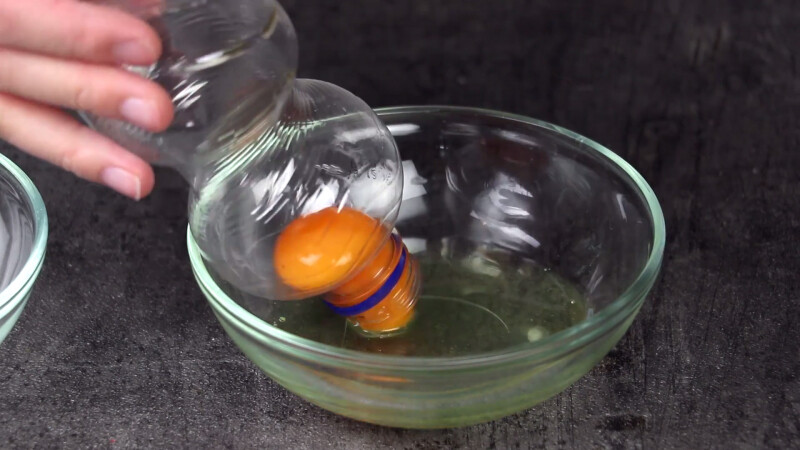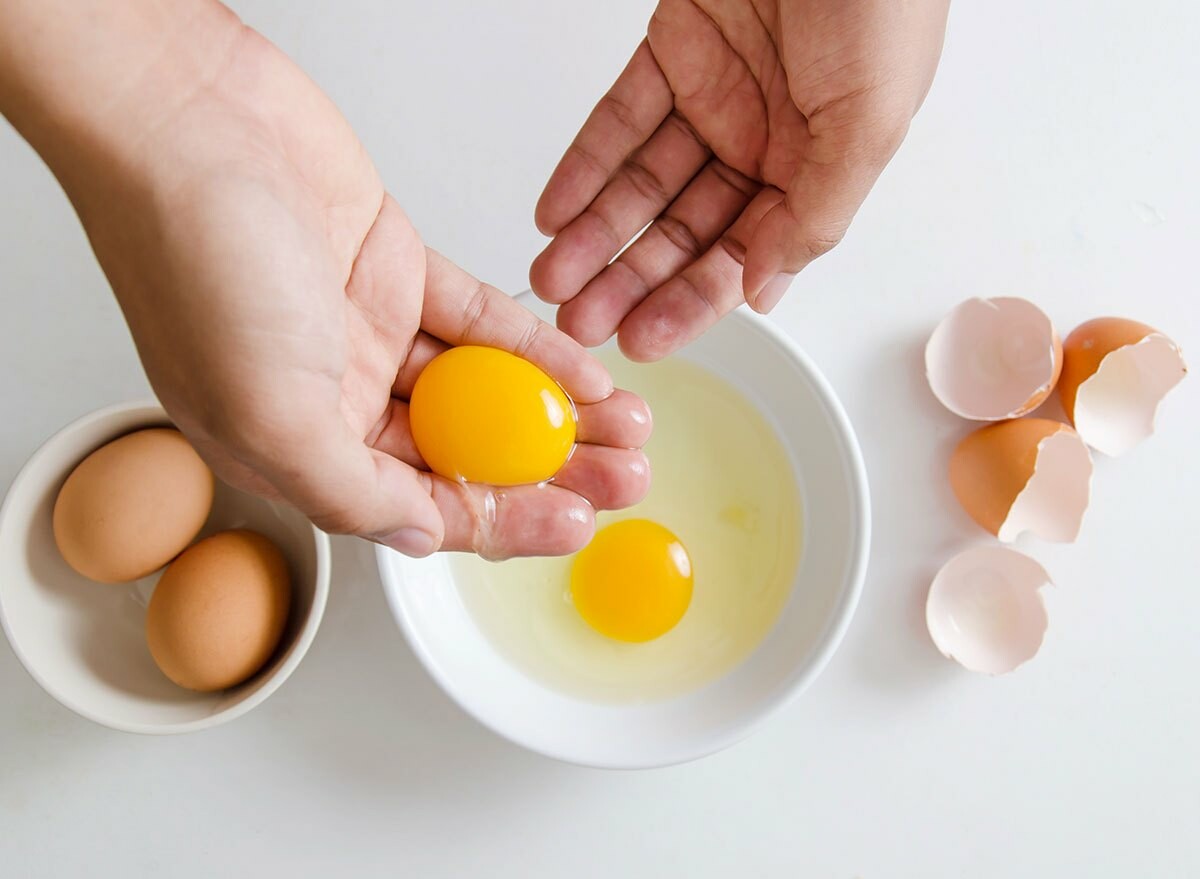Separating egg whites and yolks is an important part of many recipes. Although this task is not difficult, it still requires some skill. To successfully separate the egg yolk, you need to choose only fresh eggs. In such eggs, the yolks keep their shape better and do not spread.
Over time, the protective membrane that hides the yolk weakens and breaks easily. Drops of yolk can get caught in the egg, making it unsuitable for whipping. This is unlikely to happen with very fresh eggs—place two clean, dry bowls side by side. Keeping your hands over the bowl, carefully beat the egg with a knife and divide it in half.
Read also: What Not To Put In The Microwave: 4 Important Tips
Pour the yolk from one half of the shell until all the white is drained into the bowl. When there is no egg white left at all, put the yolk in another container.
How to separate the whites from the yolk with a bottle

Crack the egg and pour the contents into a bowl. Take a clean plastic bottle, squeeze it a little to release some of the air. Now bring the neck close to the yolk and gently release the sides of the bottle. In this case, the yolk will be drawn inward. It remains only to squeeze it into a separate container, slightly squeezing the bottle.
How to separate the whites from the yolk using bare hands

Wash your hands thoroughly. Break the egg into a bent palm and spread your fingers slightly. This will drain the white into the bowl and leave the yolk in your hand. You can use a slotted spoon or spatula to break eggs similarly.
Also read: Pineapple Salad With Vegetables, Eggs, And Yoghurt Dressing
Separately, the whites and yolk can be refrigerated for up to three days. Eggs freeze well, so you can wrap them in small containers and mark their number – then it will be difficult for you to remember how many there were original. In the freezer, the proteins will stay fresh for two months.
Adapted and translated by Wiki Avenue Staff
Sources: Today Lifestyle






